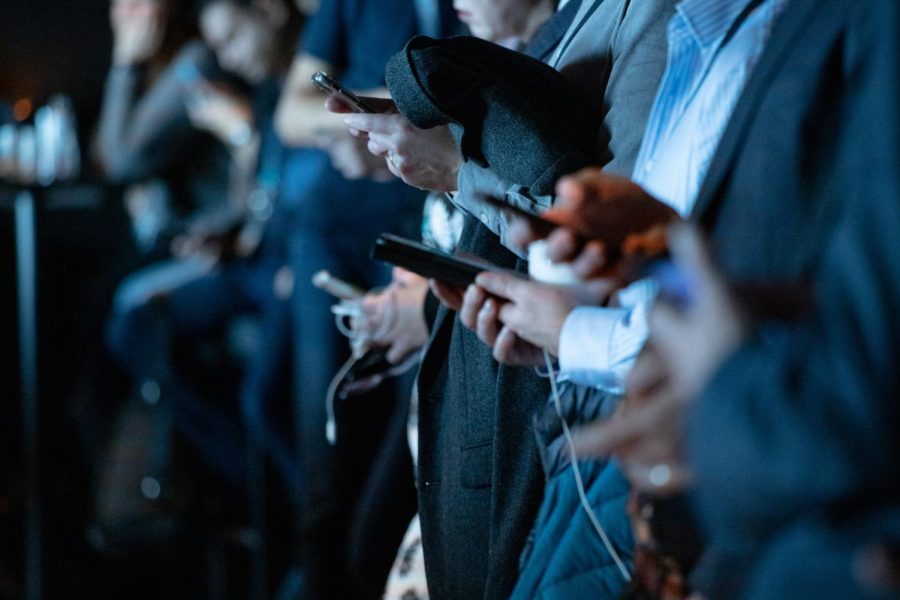Should the United States Place Restrictions on Social Media Platforms?
The use of technology has become increasingly widespread, especially with social media’s prevalent role in modern society.
May 3, 2023
*The opinions expressed within the content are solely the author’s and do not reflect the website’s or its affiliates’ opinions and beliefs.*
With the rising use of social media, people can easily connect with friends and family, access crucial news and information and share their ideas and opinions. However, social media’s growing influence raises concerns about the potential effects on society, particularly with the rise of hate speech, misinformation and conspiracy theories. This has sparked an ongoing discussion on whether the U.S. government should regulate social media platforms to mitigate the negative effects.
Although social media allows people to express their beliefs, regardless of how extreme they may be, unregulated platforms have allowed hate speech to flourish, which can seriously harm communities through discrimination or violence. Additionally, social media platforms have been linked to the growth of cyberbullying, which could hurt users without adequate regulation.
Sophomore Shadee Ghiassi offered her outlook on how using social media allows individuals to show their innovative and personal side.
“Social media is a platform that promotes connecting people worldwide, ensuring that people can share personal experiences on current events,” Ghiassi said. “However, its benefits are overshadowed by the major negatives when examining how easily people are influenced by false information or biased point of view.”
To preserve users’ privacy, the U.S. should consider regulating social media. Social networking apps gather a lot of data from users’ phones, and this data may be sold to a third party or used for advertising without user knowledge. This raises questions regarding the effects of social media and whether its benefits outweigh the risks involved.
Freshman Isabella Guo provided her perspective on how overwhelming and harmful social media can be for adolescents.
“I think that the United States should add restrictions on social media platforms because social media can be a toxic environment with individuals saying inappropriate or hateful speeches, which should not be tolerated,” Guo said.
Moreover, some individuals contend that limitations on social media might go against the First Amendment’s protection of free speech. However, the use of social media has undoubtedly played a major role in the transmission of false information. Social media algorithms are designed to encourage users to view material that engages them, which may contain inaccurate information, such as the “profound” side effects of COVID-19 vaccinations that were not truly accurate. Even though understanding another person’s perspective is important when viewing an issue, the active spread of misinformation can harm an individual’s entire thought process by assimilating inaccurate facts rather than simply a controversial opinion. Therefore, the government is obligated to shield American citizens from harmful speech, particularly through restrictions on the spread of misinformation that is present in social media.
Sophomore Adam Roxy proposed his perspective on how social media should be regulated because of how unsafe it is with the significant amount of false information.
“There should be some sort of restrictions on social media, especially against false information,” Roxy said. “I think more social media platforms should implement something similar to what Twitter did, with a fact checker to ensure that all posts are accurate.”
Indeed, fact-checking can be very beneficial in ensuring that social media users have a positive experience. However, when the U.S. implements regulation on social media, officials must also be wary of the potential effects of overregulation. Social networking platforms have also become a significant part of the economy, and limitations may hinder small businesses ability to compete with larger corporations. Therefore, social media restrictions should be carefully considered to avoid harming small businesses or other individuals relying on social media for their vocation.
In conclusion, the U.S. government should consider regulating social media to protect users and limit the negative effects of hate speech, cyberbullying and false information. However, limitations must be carefully crafted to avoid violating free speech and harming small businesses. While social media is a valuable tool for personal expression, it is important to balance its benefits with its potential harm.





